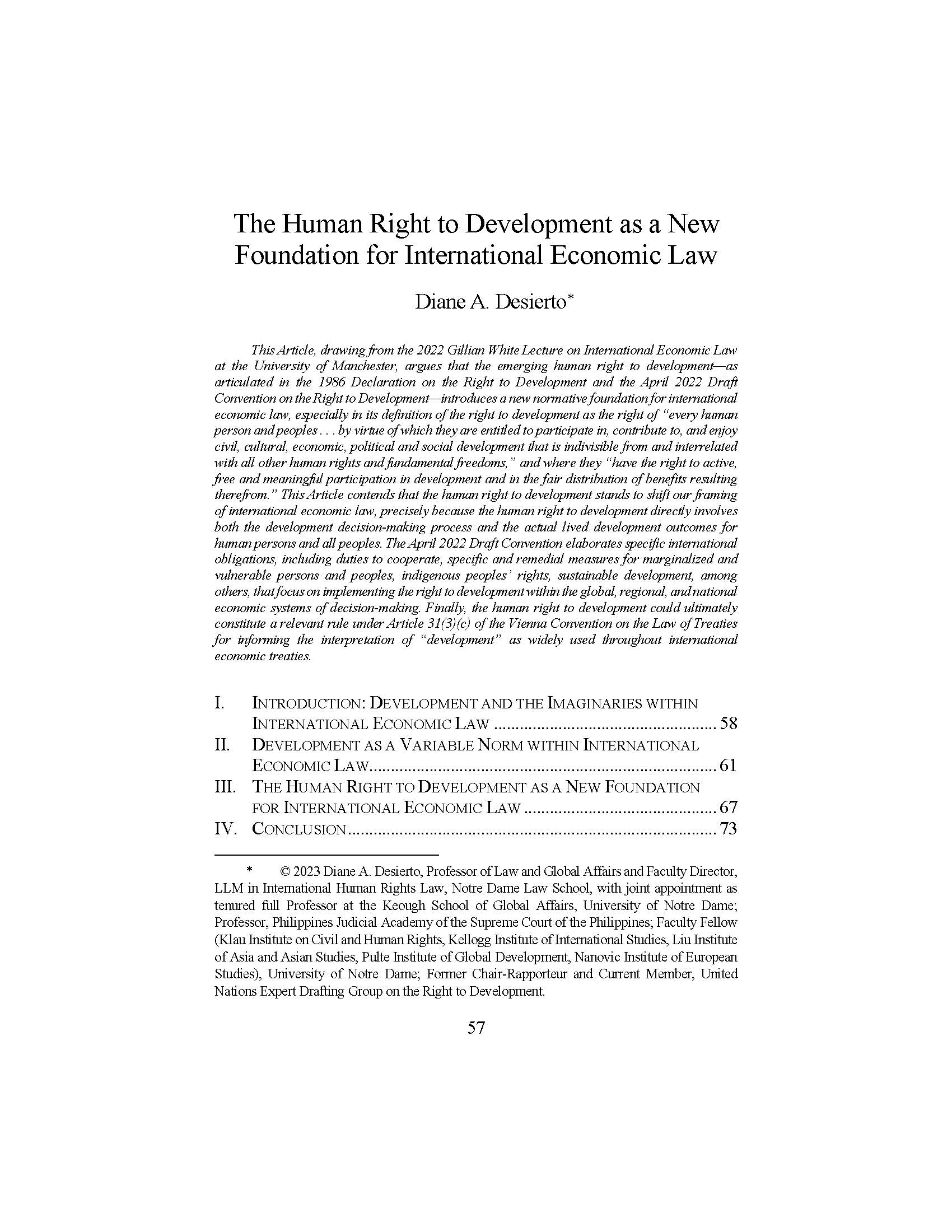The Human Right to Development as a New Foundation for International Economic Law
Abstract
This Article, drawing from the 2022 Gillian White Lecture on International Economic Law at the University of Manchester, argues that the emerging human right to development—as articulated in the 1986 Declaration on the Right to Development and the April 2022 Draft Convention on the Right to Development—introduces a new normative foundation for international economic law, especially in its definition of the right to development as the right of “every human person and peoples . . . by virtue of which they are entitled to participate in, contribute to, and enjoy civil, cultural, economic, political and social development that is indivisible from and interrelated with all other human rights and fundamental freedoms,” and where they “have the right to active, free and meaningful participation in development and in the fair distribution of benefits resulting therefrom.” This Article contends that the human right to development stands to shift our framing of international economic law, precisely because the human right to development directly involves both the development decision-making process and the actual lived development outcomes for human persons and all peoples. The April 2022 Draft Convention elaborates specific international obligations, including duties to cooperate, specific and remedial measures for marginalized and vulnerable persons and peoples, indigenous peoples’ rights, sustainable development, among others, that focus on implementing the right to development within the global, regional, and national economic systems of decision-making. Finally, the human right to development could ultimately constitute a relevant rule under Article 31(3)(c) of the Vienna Convention on the Law of Treaties for informing the interpretation of “development” as widely used throughout international economic treaties.
